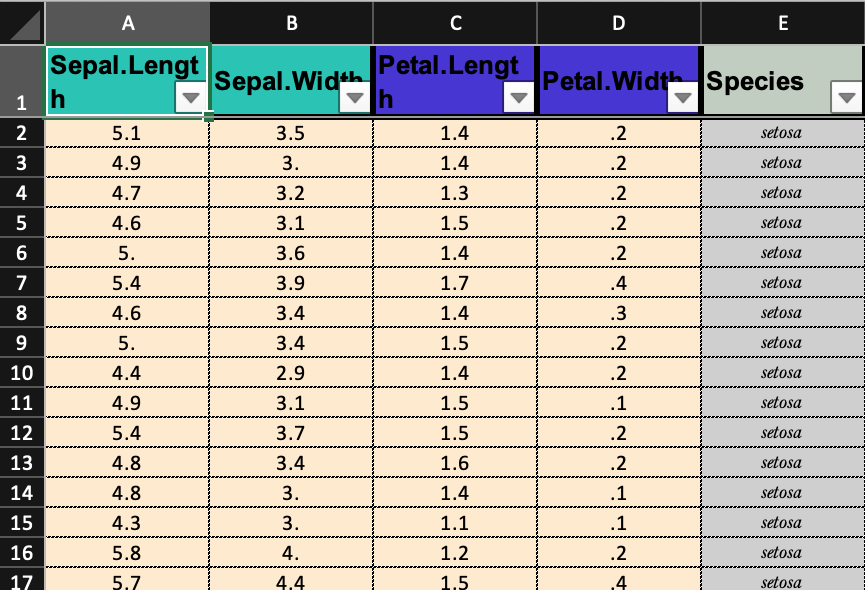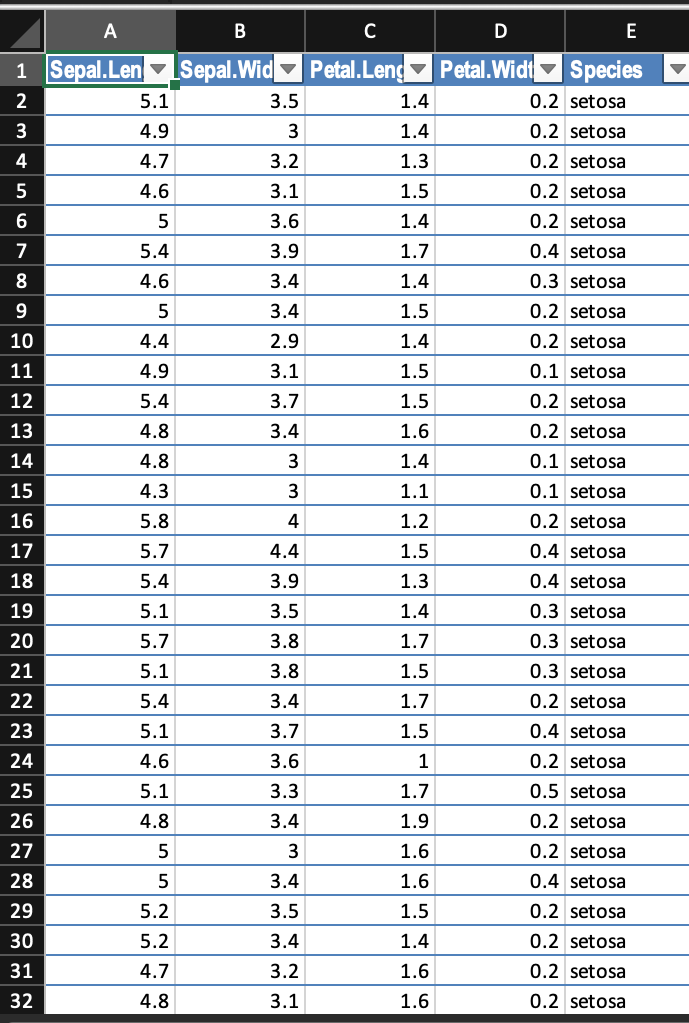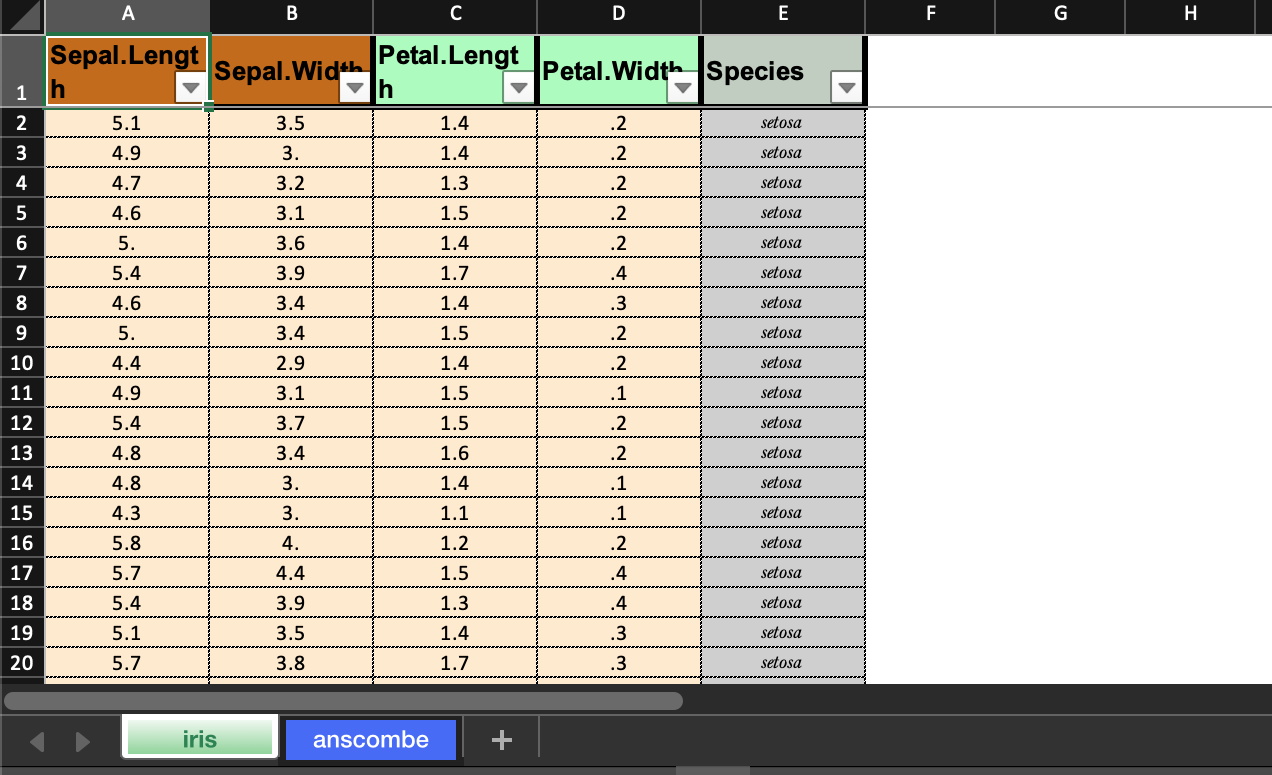argument descriptions
df
When using make excel, the first input is a dataframe, but do not input an expression or use a pipe. A variable name is necessary for proper naming of the excel output, which is sent to the working directory and named after the data frame.
last id col
The recommended ouput format is to put ID style columns first and and value columns after. Last_id_col takes the integer index of the last id column.
header words
If value columns are organized by header words they can be included in a character string. This will color code the column headers. Split and merge cells are not used to maintain ease of read / write compatibility of the workbook with R.
make_excel(df = iris,
header_word = c("Sepal", "Petal"),
last_id_col = NULL)
output of make excel
make simple excel
make_simple_excel allows the user to export to excel but with minimal formatting. THe data frame can be piped in, and unless specified otherwise in `output_file, the resulting excel file will be named after the data frame.
iris %>%
make_simple_excel()
output of make simple excel
export list of dfs
make_simple_excel also accepts a list of dfs, and exports one per sheet. This is useful when you automatically generated a list of tables, or saved a bunch of table summaries in a list.
iris %>%
group_by(Species) %>%
summarize(across(where(is.numeric), sum)) -> iris_summary
list(iris, iris_summary) -> iris_list
iris_list %>%
make_simple_excel()
list of dfs to excel wb
make an excel workbook with multiple sheets
Use the automated formatting paradigm and customize the id cols and header words for each sheet.
make_excel_wb(wb = NULL,
object = iris,
last_id_col = NULL,
header_word = c("Sepal", "Petal")) %>%
make_excel_wb(object = anscombe,
last_id_col = NULL,
header_word = NULL) %>%
finish_excel_wb(wb_name = "data_workbook")
custom excel wb